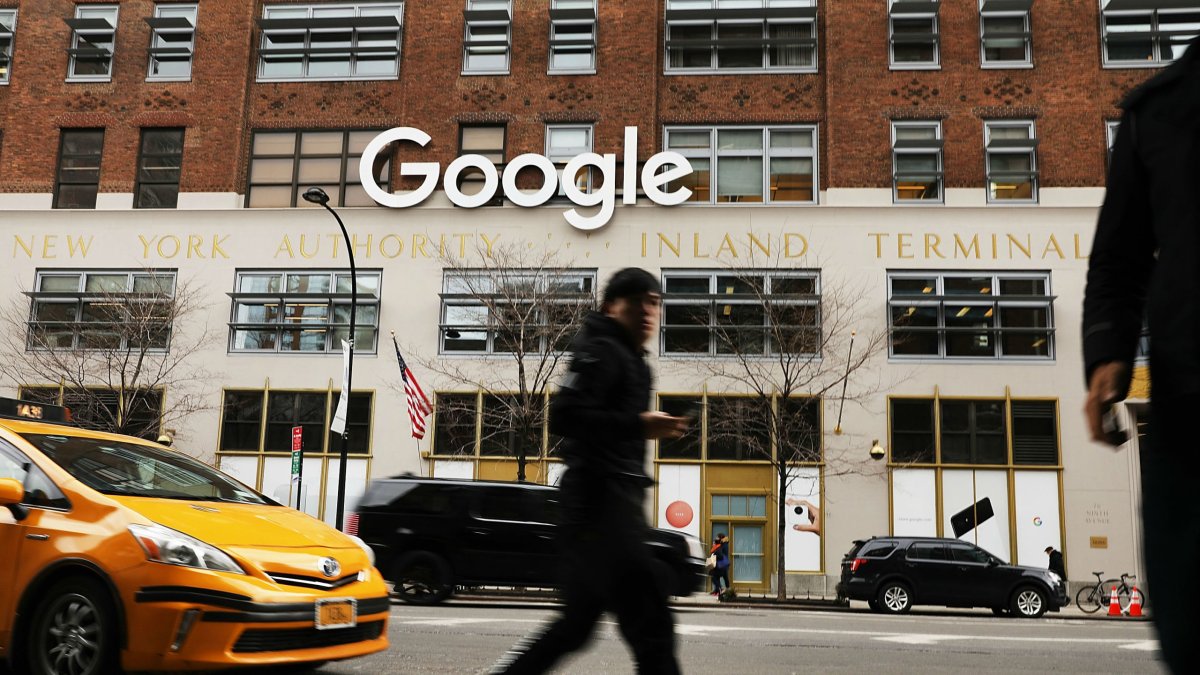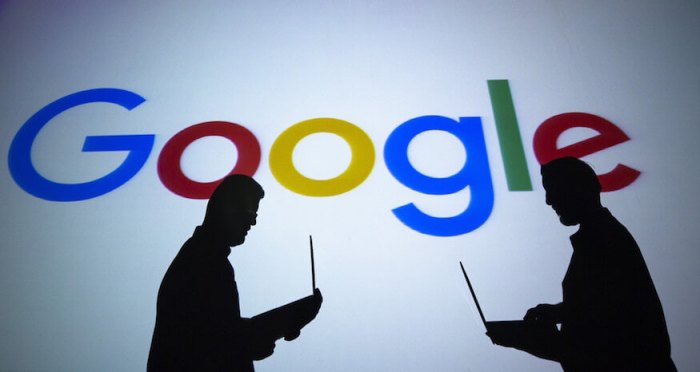Less than a month after Amazon announced it would establish part of its HQ2 in Queens, Google announced on Monday that it’s expanding in New York City, painting a picture of a tech future for the five boroughs. But is the city ready to handle two tech giants?
Google will create a more-than 1.7 million square foot campus in Hudson Square, investing more than $1 billion into the lower Manhattan neighborhood.
Google Hudson Square, as the company calls its campus-to-be, will occupy 315 and 345 Hudson Street and 550 Washington Street. The company plans to move into the two Hudson Street buildings by 2020 and the Washington Street spot in 2022, once that building is complete.
Google Hudson Square will be the primary location for the company’s New York-based Global Business Organization, but it’s not Google’s first foray into New York City.
Google first came here in 2000, marking the first Google office outside of California which now houses more than 7,000 employees. In March, Google announced a $2.4 billion purchase of the Manhattan Chelsea Market, and in February, the company said it would lease more space at Pier 57.
Google Hudson Square and Amazon HQ2: Is NYC ready to be next Silicon Valley?
With this Google expansion and Amazon HQ2, Kathryn Wylde, president and CEO of Partnership for New York City, said that New York City’s tech future is clear.
“It’s likely that we’ll not only compete with but surpass Silicon Valley,” she said, “because we literally don’t just have a tech industry, we’ve got technology transforming all our major industries.”
But Amazon HQ2 has drawn plenty of criticism, including over how it may cause an influx of workers to the area. New Yorkers wonder how that increase will affect the already-fraught New York City subway and housing market.

This is a concern that Wylde, as the head of a city business leadership organization, hears as well.
“The capacity of the city to support new job creators is something that we have to deal with [regarding] our transportation system, housing and services,” she said. “But cities grow or die, so our job is to keep pace, to make sure that services and infrastructure keeps pace with economic growth.”
But those aren’t the only infrastructure concerns, according to Shrihari Pandit, CEO of Stealth Communications, a New York City-based internet service provider.
“New York City’s electrical system is over 100 years old,” he said in an email. “A decade ago, specialized media and high-tech companies only needed access to high-bandwidth internet, but with modern companies, everyone needs this level of access. This went from a specialized, high-tech infrastructure, to a need for every single company.”
There’s an “imperative” need for New York’s data infrastructure to be modernized for the new wave of business and tech companies headed here, he added, and the Google expansion is proof.
“We are at a great moment for New York City tech businesses, and ancillary small businesses, startups and entrepreneurs who decide to come into the area as a result that are stuck on DSL and copper connectivity should not fall behind because data infrastructure and bandwidth are lagging,” he said. “Investing in future-proofing NYC and all it’s boroughs is the next valuable step.”
Wylde doesn’t see Google Hudson Square getting the same pushback as Amazon HQ2 in Queens, though, since the Google expansion doesn’t include any public subsidies like tax breaks. Still, she believes both offer opportunities for New Yorkers, even if not all the jobs created go directly to workers already here.
“We have a shortage in New York City, on any given day, of 150,000 vacant job postings [with] most of them seeking technology expertise that’s in short supply,” Wylde said. “Amazon and Google will attract workers from all over the world, but also provide training and internship opportunities to help local residents be prepared to fill these jobs.”


























